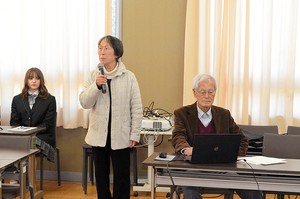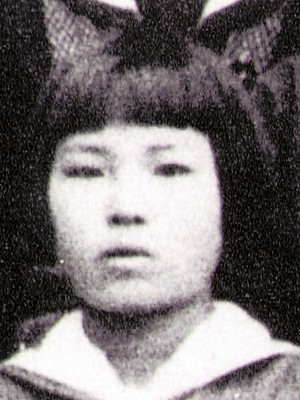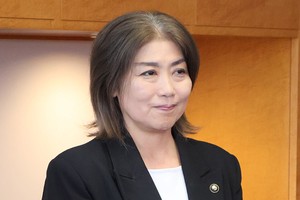By SHINICHI SEKINE/ Staff Writer
June 26, 2023 at 18:46 JST
NIKKO, Tochigi Prefecture--The Group of Seven ministers for gender equality and women’s empowerment pledged to promote economic independence of women by increasing the number of female executives and eliminating wage disparities.
“The challenges in realizing a gender-equal society have become even more difficult because of the recent compounding crises,” the ministers said in a joint statement as they wrapped up their two-day meeting in Nikko, Tochigi Prefecture, on June 25.
The crises include Russia’s invasion of Ukraine and the COVID-19 pandemic.
The ministers said the G-7 nations will commit to accelerate “efforts toward full gender equality, and further empowering all women and girls.”
The statement underscores the importance of taking a comprehensive approach to close the wage gap between men and women, a common issue among the G-7 nations.
The approach includes expanding women’s representation in executive and managerial positions, facilitating labor mobility of women to growing and high-paying sectors, supporting women’s entrepreneurship, and promoting a more gender-equal sharing of unpaid care and domestic work.
Japan ranked 125th of 146 countries in terms of closing the gender gap, according to the World Economic Forum’s Gender Gap Report 2023 released on June 23.
The report shows that Japan’s gender wage gap stands at 22.1 percent, and the ratio of female board members in companies listed on the Tokyo Stock Exchange Prime Market is 11.4 percent, both the lowest among the G-7 nations.
Japanese women perform 5.5 times more unpaid work than men, also the largest disparity in the G-7, according to statistics.
MISOGYNISTIC HATE INTENSIFIES
“We will steadily promote support for female entrepreneurs,” Masanobu Ogura, Japan’s state minister for gender equality who chaired the meeting, said at a news conference. “We would like to work on measures to encourage men’s participation in household chores and child care.”
Regarding sexual minorities, the statement said the G-7 nations will continue their “efforts toward realizing a society where the human rights and dignity of all women, girls, and LGBTQIA+ persons, are fully respected, promoted, and protected.”
The Q in LGBTQIA+ stands for “queer” or “questioning,” representing individuals who do not fit into specific categories of sexuality, or those who are uncertain about their sexual orientation.
The A stands for “asexual,” which refers to individuals who do not feel a sexual attraction to anyone.
The I stands for “intersex,” which refers to people born with physical sex characteristics that are in-between male and female or do not fit into binary notions.
Yuichi Kamiya, executive director of the Japan Alliance for LGBT Legislation, said: “It was strongly shown that the issue of LGBTQIA+ is a gender issue. The government should take concrete steps toward equality in the country.”
The G-7 statement also mentions the impact of artificial intelligence.
According to the statement, the risk of experiencing technology-facilitated gender-based violence has been heightened through the use of information and communication technology or other digital tools, such as artificial intelligence.
“Online violence, harassment, disinformation, and misogynist hate speech have intensified over the past few years,” the statement said.
It says the G-7 nations must consider measures, “such as establishing an effective process of reporting and removing contents violating the law, and holding perpetrators, including platform companies when appropriate, accountable.”
NO MENTION OF PROTOCOL IN STATEMENT
Although civil groups have called on the Japanese government to ratify the Optional Protocol of the Convention on the Elimination of All Forms of Discrimination against Women, the protocol was not mentioned in the joint statement.
A petition with around 90,000 signatures calling for Japan’ s ratification was submitted to the ordinary Diet session that ended on June 21. The civil groups also called on the government to discuss the protocol as host of this year’s G-7 conferences.
But the ruling Liberal Democratic Party and Nippon Ishin (Japan Innovation Party) opposed the idea in the Upper House, and deliberations ended.
Under the protocol that came into force in 2000, individuals or groups whose rights have been violated can seek redress from a United Nations’ committee.
Around 60 percent of U.N. member states, or 115 countries, have signed the protocol. Japan and the United States are the only G-7 nations that have not ratified it.




















A peek through the music industry’s curtain at the producers who harnessed social media to help their idols go global.
A series based on diplomatic documents declassified by Japan’s Foreign Ministry
Here is a collection of first-hand accounts by “hibakusha” atomic bomb survivors.
Cooking experts, chefs and others involved in the field of food introduce their special recipes intertwined with their paths in life.
A series about Japanese-Americans and their memories of World War II